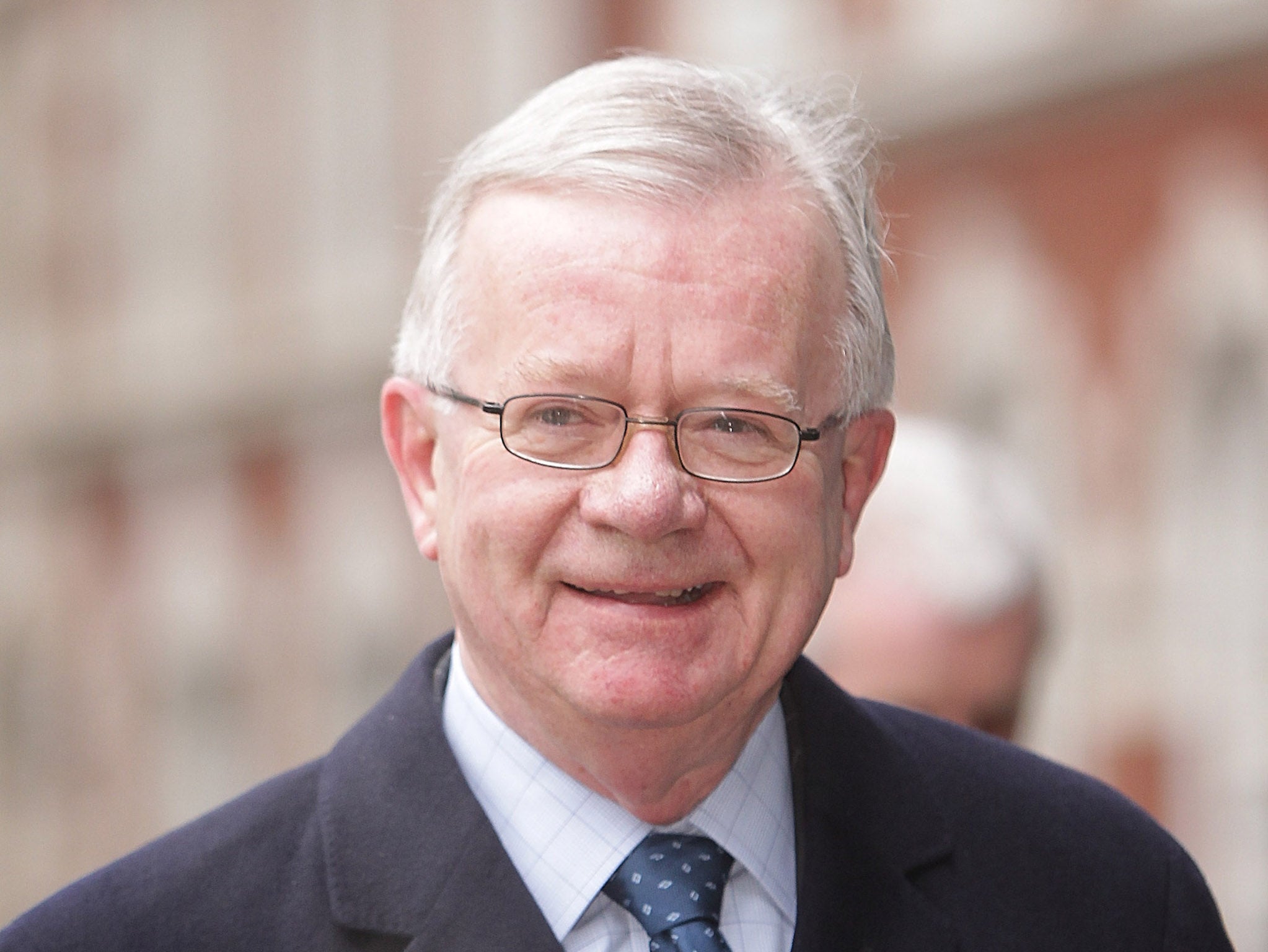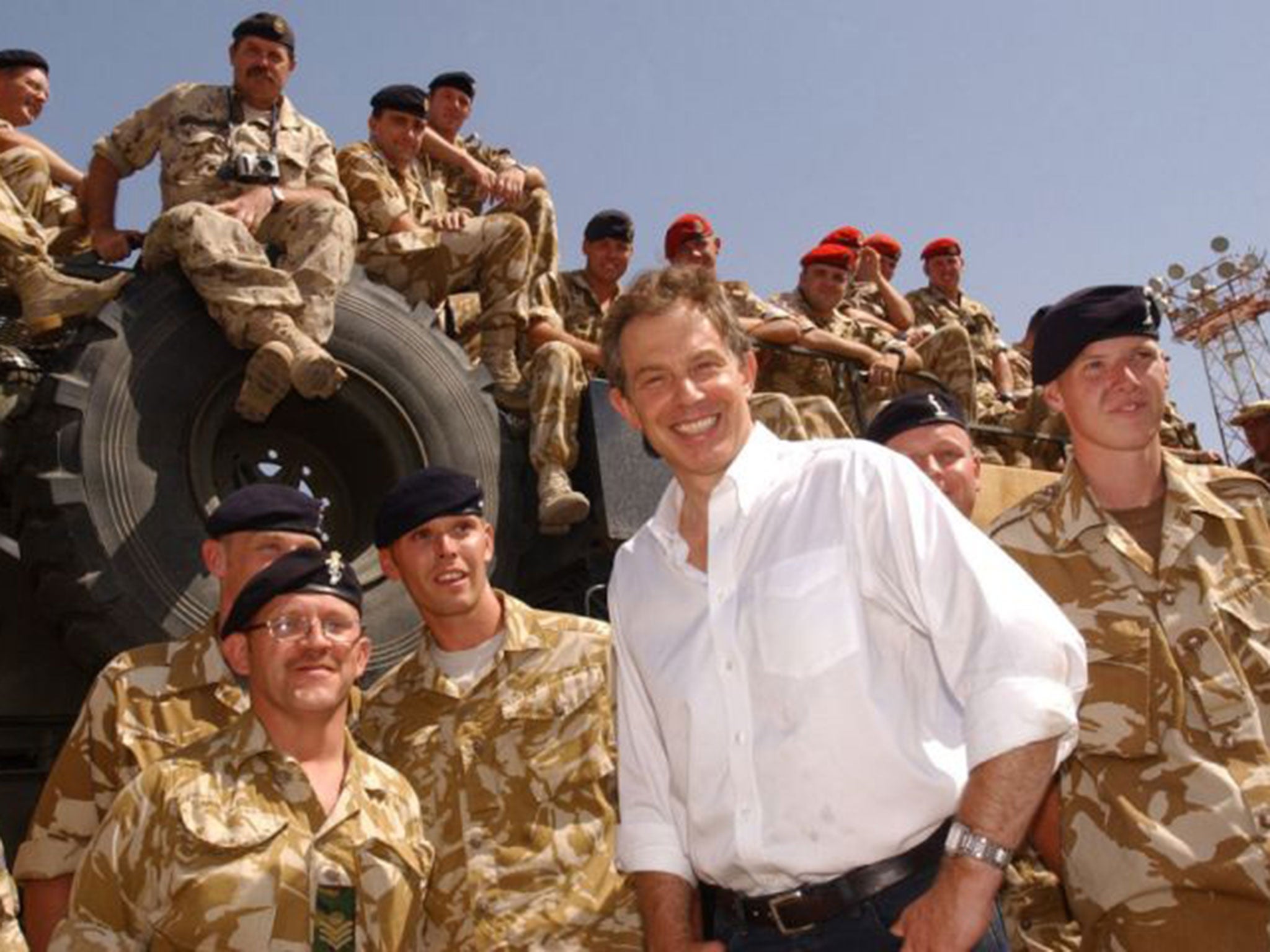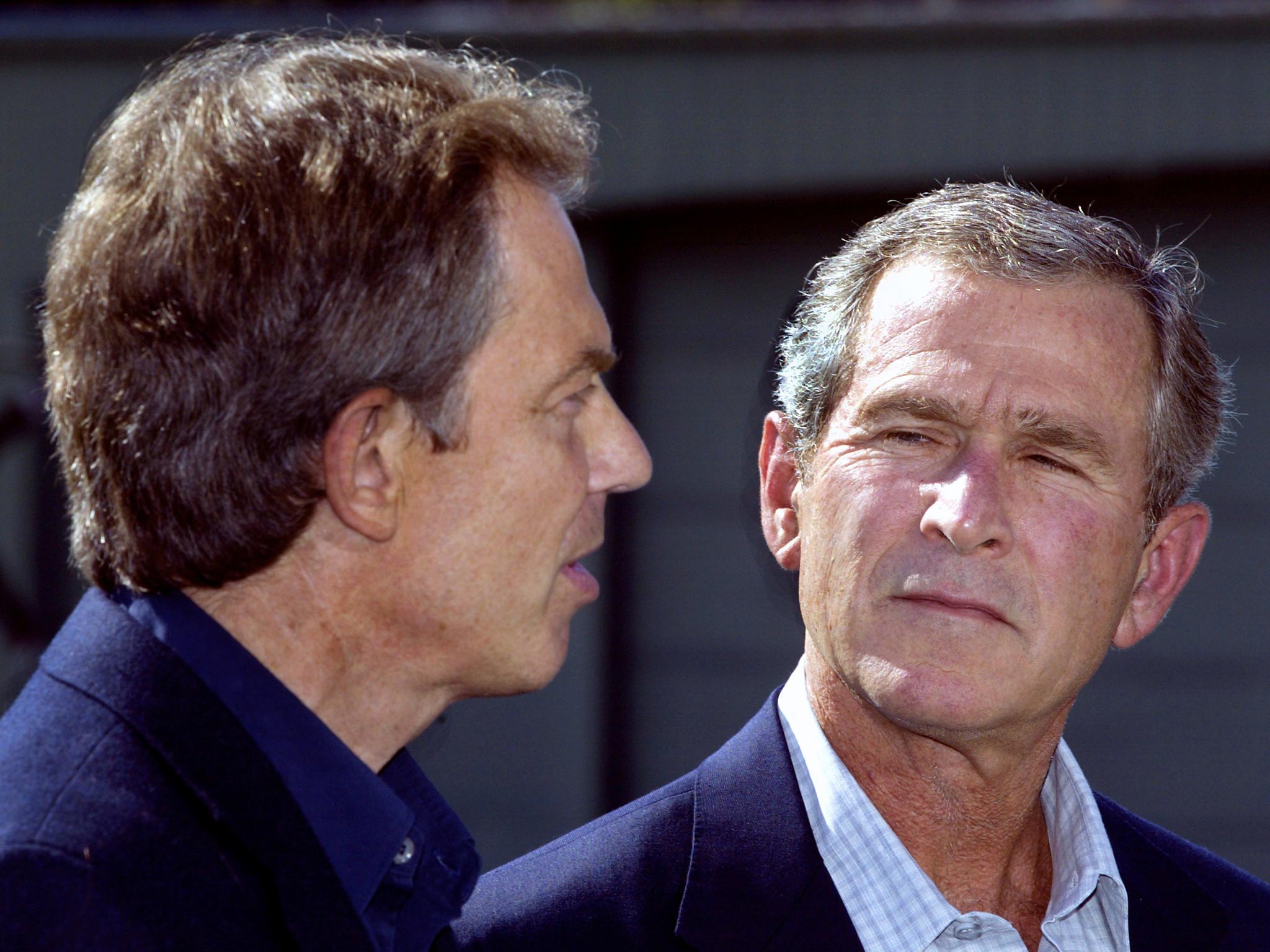Chilcot inquiry: Timeline of events from 9/11 to the announced publication date of the report
Inquiry into Iraq war to be published on the 6 July

The findings of the long-awaited Chilcot report will be published at the beginning of July - shortly after the EU referendum - a spokesman for the inquiry announced today. Here is a timeline of the events, starting with the attack on the World Trade Centres in 2001 and ending with the announcement of the report’s publication date:
11 September 2001
Terrorists belonging to al-Qaeda use hijacked aeroplanes to kill 2,996 people in attacks on the east coast of the US.
12 September 2001
Tony Blair promises George W Bush that the UK will support the US, whatever the President decides to do.
14 September 2001
Congress authorises President Bush to use all “necessary and appropriate force” against terrorists.
7 October 2001
A US-led coalition begins its aerial attacks on Afghanistan. By the time combat operations come to a formal end on 28 December, the Taliban has been overthrown; but Osama bin Laden remains at large.
25 March 2002
Jack Straw, Foreign Secretary, warns Blair that invading Iraq would be legally dubious
4 April 2002
An MI6 briefing appears to convince Blair that the WMD threat from Libya is far more serious than that from Iraq
6 April 2002
Tony Blair visits President Bush at his ranch in Crawford, Texas. Some witnesses report that, following a private meeting between the two, Blair’s stance on Iraq “tightened”; but Blair himself has disputed claims that he gave an “undertaking in blood” to go to war in Iraq.
7 April 2002
Blair explicitly mentions the possibility of “regime change” in a speech.
May 2002
General Tommy Franks, commander of US forces, tells Air Chief Marshal Sir Brian Burridge that he hopes the UK would be “alongside” the US in attacking Iraq.
June 2002
Tony Blair asks defence officials to outline options for UK participation in military action against Iraq.
16 July 2002
Blair tells MP “no decisions... have been taken about military action.”
23 July 2002
Senior members of the government meet with senior defence and intelligence figures to discuss the build-up to war. A note of the meeting, known as the “Downing Street memo”, was later published, appearing to confirm that military action was now considered inevitable.
24 September 2002
The government publishes a dossier about the threat from Iraq’s weapons of mass destruction. A foreword by Tony Blair states that Saddam Hussein’s “military planning allows for some of the WMD to be ready within 45 minutes of an order to use them”. It is subsequently alleged that this dossier was “sexed up” for political reasons.
2 October 2002
Congress authorises President Bush to use military force against Iraq.
8 November 2002
UN Security Council passes resolution 1441, insisting that weapons inspectors be allowed back into Iraq and calling on the regime to give up its WMD or face the consequences.
12 May 2003
Paul Bremer becomes Administrator of the Coalition Provisional Authority in Iraq.
23 May 2003
Paul Bremer dissolves the Iraqi army, along with other key elements of the Baathist state.
2 June 2003
In a BBC interview, former International Development Secretary Clare Short accuses Tony Blair of having misled the Cabinet on the eve of war.
13 July 2003
Iraqi Governing Council established.
18 July 2003
David Kelly, an expert in biological warfare, is found dead after being named as the source of quotations used by the BBC’s Andrew Gilligan to suggest that the dossier of September 2002 had been “sexed up”. Lord Hutton is appointed to chair a judicial inquiry into his death.
3 September 2003
New Iraqi government established.
2 October 2003
Report of Iraq Survey Group reveals absence of evidence of WMD in Iraq.
13 December 2003
Saddam Hussein is captured near Tikrit, after nine months in hiding.
28 January 2004
The report of the Hutton Inquiry is published.
3 February 2004
Lord Butler is appointed to chair an official review of the intelligence on WMD on which the British government reportedly based its decision to take part in the invasion of Iraq.
2 March 2004
Bombings in Baghdad and Karbala kill nearly 200 people: the worst attacks since the fall of Saddam.
28 April 2004
A CBS report brings photographic evidence of the abuse of prisoners by US forces in Baghdad’s Abu Ghraib prison to worldwide attention.
8 June 2004
UN transfers sovereignty from the Coalition Provisional Authority to the Iraqi Interim Government.
14 July 2004
The Butler Review is published. Its conclusion is that some of the intelligence used to justify attacking Iraq was unreliable and that “more weight was placed on the intelligence than it could bear”.
November 2004
More than 1,350 insurgents are killed when the US uses overwhelming force to recapture the rebel-held city of Fallujah.
14 September 2005
Bombs in Baghdad kill 160 people and injure more than 500.
15 October 2005
Iraq’s new constitution is approved in a referendum.
15 December 2005
Iraq’s first post-Saddam parliamentary election.
30 December 2005
Saddam Hussein is executed.
20 May 2006
New Iraqi government succeeds transitional government.
10 January 2007
In the face of insurrection, the US announces a “surge” of 20,000 extra troops to increase security in Baghdad.
28 May 2009
The last British combat troops leave Iraq.

15 June 2009
Gordon Brown, Tony Blair’s successor as Prime Minister, announces that an inquiry will be set up, under Sir John Chilcot, to “learn the lessons” of the conflict.
24 November 2009
The Chilcot inquiry holds its first public hearing.
7 March 2010
Inconclusive parliamentary elections result in the formation of a government in which Nouri al-Maliki continues as Prime Minister.
January 2011
In Syria, protests begin against the Assad regime; the civil war to follow will destabilise the entire region, including Iraq.
2 February 2011
The Chilcot inquiry holds its final public hearing.
12 May 2011
Sir John Chilcot says that his report will be published, at the earliest, in the autumn of 2011.
16 November 2011
The Chilcot inquiry announces that it cannot publish report before summer 2012 if it is to “do justice” to the complexities involved.
18 December 2011
The last US troops leave Iraq, after nearly nine years of combat that cost 4,488 US lives and left 32,226 soldiers injured.
16 July 2012
Sir John Chilcot says that he cannot report before mid-2013.
6 November 2013
The Chilcot inquiry announces that it cannot proceed with its work due to an impasse over the release of key documents (including exchanges between Blair and Bush).
29 May 2014
The Chilcot inquiry says that it will publish the “gist” of exchanges between Blair and Bush, but that full transcripts will remain secret.
10 June 2014
The extremist group known as Isis captures Mosul, along with large swathes of northern and western Iraq.
29 June 2014
Abu Bakr al-Baghdadi, leader of Isis, declares a new “caliphate” over 250,000sq km of Iraq and Syria.
16 October 2014
William Hague and David Cameron say they hope the report will be published before the 2015 general election.
21 January 2015
Sir John Chilcot confirms that his report will not be published before the general election in May 2015.
28 January 2015
Chilcot agrees to appear before the Commons Foreign Affairs Select Committee to answer questions about progress

4 February 2015
He tells committee that he will not give a timetable for publication. He also informs MPs that one of the panel members, historian Martin Gilbert, has died.
October 2015
He tells PM he will finish report by April 2016
8 November 2015
Falklands veteran Simon Weston described the inquiry as “an insult to the memories of every single person that died”
9 May 2016
Publication date (July 6) announced by Sir John Chilcot and David Cameron
Join our commenting forum
Join thought-provoking conversations, follow other Independent readers and see their replies
Comments